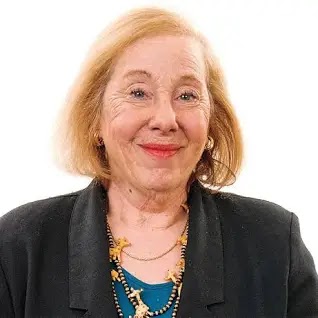Evolution of Management Thinking and Practices – Last Part – Asrar Qureshi’s Blog Post #922
Evolution of Management Thinking and Practices – Last Part – Asrar Qureshi’s Blog Post #922
Dear Colleagues! This is Asrar Qureshi’s Blog Post #922 for Pharma Veterans. Pharma Veterans aims to share knowledge and wisdom from Veterans for the benefit of Community at large. Pharma Veterans Blog is published by Asrar Qureshi on WordPress, the top blog site. Please email to asrar@asrarqureshi.com for publishing your contributions here.
 |
| Stephen R. Covey |
 |
| Marshall Goldsmith |
 |
| Rosabeth Moss Kanter |
 |
| Philip Kotler |
 |
| John C. Maxwell |
 |
| Henry Mintzberg |
 |
| Michael Porter |
I shall be closing this topic with this blog post. Though a lot more could be written on the topic, I understand the point is made. Management thinking and practices shall keep on evolving over time as the needs evolve. Many more great people shall contribute to this body of knowledge. The critical point is to keep moving forward.
The contributions of management thinkers have been and are the drivers that have kept management practices evolving as per need of time. I have picked up few names and I am giving below the core concepts that they contributed.
Philip Kotler – Father of Modern Marketing
Philip Kotler, often hailed as the "Father of Modern Marketing," has significantly influenced how businesses approach and execute their marketing strategies. His insights extend beyond the conventional 4Ps (Product, Price, Place, and Promotion), going deep into the realms of customer-centricity, relationship marketing, and the societal impact of marketing. He developed the concepts of ‘Prosumers’, ‘Atmospherics’, and ‘Social Marketing’.
Kotler's emphasis on creating value for customers and building long-term relationships has revolutionized marketing practices. His framework encourages businesses to move beyond transactional engagements and focus on understanding, anticipating, and satisfying customer needs. In an era dominated by customer experience, Kotler's teachings remain instrumental in shaping customer-centric management strategies.
Henry Mintzberg – Crafting a Holistic Approach to Management
Henry Mintzberg, a renowned management scholar, challenges conventional wisdom by offering a holistic perspective on management. His critique of rigid, top-down managerial approaches led to the development of his managerial roles theory, which identifies ten key roles managers play within organizations. Mintzberg's ideas emphasize the complexity and diversity of managerial work, rejecting one-size-fits-all management prescriptions. Arguably, his most celebrated work is his ‘Ten Managerial Roles’ where he outlines the mutliple roles a manager plays in an organization. These roles are categorized into three groups, namely, Interpersonal, Informational, and Decisional roles.
Mintzberg advocates for a contextual understanding of management, recognizing that effective leadership requires a nuanced approach tailored to the specific needs of an organization. His contributions have encouraged a shift towards more flexible and adaptive management practices, fostering a balance between structure and creativity.
Marshall Goldsmith – Nurturing Leadership Excellence
Marshall Goldsmith, a preeminent executive coach and leadership thinker, focuses on personal and leadership development. His emphasis on behavioral coaching and the concept of "feedforward" has reshaped the way leaders perceive their roles and responsibilities. Goldsmith challenges leaders to engage in continuous self-improvement, emphasizing the importance of humility and receptivity to feedback.
The 360-degree feedback process, a hallmark of Goldsmith's coaching methodology, promotes a comprehensive understanding of leadership effectiveness. His teachings encourage leaders to cultivate a culture of openness and accountability, fostering an environment where individuals at all levels actively contribute to organizational success.
Michael Porter – Architect of Competitive Strategy
Michael Porter, a luminary in strategic management, has redefined how organizations conceptualize and pursue competitive advantage. His seminal work on the Five Forces framework offers a comprehensive analysis of industry structure, guiding businesses to assess competitive forces and formulate strategic responses.
Porter's emphasis on strategic positioning and creating unique value propositions has become fundamental in shaping management strategies. Organizations worldwide have adopted his frameworks to carve out distinctive positions in competitive landscapes, highlighting the enduring impact of Porter's strategic insights on modern business practices.
John C. Maxwell – A Beacon of Leadership Wisdom
Maxwell, is a renowned leadership expert, author, and speaker, whohas left an indelible mark on the landscape of organizational leadership.
Maxwell's teachings primarily revolve around the principles of transformative leadership. He emphasizes the idea that leadership is not just a position but a continuous journey of personal growth and influence. His acclaimed book, "The 21 Irrefutable Laws of Leadership," outlines key principles that leaders can apply to enhance their effectiveness and inspire those around them.
One of Maxwell's central concepts is the "Law of the Lid," which posits that an individual's effectiveness as a leader is constrained by their personal leadership abilities. According to Maxwell, raising this "lid" through intentional personal development is crucial for unlocking leadership potential and achieving greater impact.
Maxwell's leadership philosophy extends beyond individual development to the importance of empowering and uplifting others. He stresses the significance of creating a positive leadership culture that fosters collaboration, trust, and a shared vision among team members. This emphasis on building strong interpersonal relationships aligns with the broader shift in modern management towards a more people-centric approach.
Furthermore, Maxwell's concept of the "Law of Influence" underscores the idea that true leadership is about positively influencing others. It encourages leaders to prioritize building connections, understanding the needs of their team, and leading with empathy.
Maxwell's teachings provide practical insights that resonate with leaders at all levels. His ideas on leadership excellence, personal growth, and the power of positive influence contribute valuable threads to the overarching tapestry of management wisdom.
As organizations navigate the challenges of the contemporary business environment, John C. Maxwell's principles serve as a compass for leaders seeking to inspire, empower, and lead with purpose. His enduring legacy lies in the countless leaders he has empowered to not only navigate change but to create a lasting impact within their teams and organizations.
Robert Greene: The Sage of Power Dynamics
Robert Greene, an astute observer of power dynamics and human behavior, brings a unique perspective to modern management practices. His works, such as "The 48 Laws of Power" and "The Art of Seduction," look deeply into the complexities of interpersonal relationships, influence, and strategic thinking.
Greene's insights offer a nuanced understanding of the subtleties of organizational dynamics, guiding leaders to navigate power structures with finesse and adaptability. While some may view his works as controversial, there's no denying the impact of Greene's perspectives on those seeking to understand and master the intricacies of power in the modern organizational landscape.
Stephen R. Covey – Architect of Effective Habits
Stephen R. Covey, an influential leadership guru, is celebrated for his transformative work, "The 7 Habits of Highly Effective People." Covey's principles, rooted in personal development and effectiveness, have transcended individual growth to become integral to organizational leadership. His timeless habits, such as "Begin with the End in Mind" and "Synergize," provide a roadmap for leaders seeking enduring success.
Covey's emphasis on aligning personal and organizational goals resonates in the modern management context. The 7 Habits framework has become a cornerstone for cultivating effective leadership skills, fostering teamwork, and promoting a holistic approach to organizational success.
Rosabeth Moss Kanter – Visionary Advocate of Change and Innovation
Rosabeth Moss Kanter, a distinguished scholar and management consultant, has left an indelible mark on modern management thinking through her exploration of innovation, leadership, and change. Her seminal work, "The Change Masters," delves into the dynamics of organizational transformation, providing insights into the challenges and opportunities inherent in the process of change.
Kanter's concept of the "Culture of Commitment" emphasizes the importance of a shared purpose and values within organizations. Her ideas encourage leaders to cultivate an environment that inspires commitment, collaboration, and innovation. Kanter's influence extends to her work on the power of innovation in fostering organizational resilience, making her a beacon for leaders navigating today's rapidly evolving business landscape.
Sum Up
In the world of management, many thinkers share their wisdom. When we bring together the ideas of Kotler, Mintzberg, Goldsmith, Porter, Maxwell, and Greene, we create a rich tapestry of knowledge. From Porter's smart strategies to Maxwell's leadership skills, and Greene's understanding of power dynamics, these ideas form a complete picture for modern organizations.
When we add Covey and Kanter's thoughts to the mix, we get even more insight. Covey talks about personal effectiveness, while Kanter focuses on commitment and innovation within organizations. Together, they give us important principles for modern management. They show us that personal growth, effective leadership, and a thriving organization go hand in hand.
Concluded.
Disclaimers: Pictures in these blogs are taken from free resources at Pexels, Pixabay, and Google. Credit is given where available. If a copyright claim is lodged, we shall remove the picture with appropriate regrets.
For most blogs, I research from several sources which are open to public. Their links are mentioned under references. There is no intention to infringe upon anyone’s copyrights. If, however, it happens unintentionally, I offer my sincere regrets.
References:
https://www.studysmarter.co.uk/explanations/engineering/professional-engineering/henry-mintzberg/#:~:text=Perhaps%20Mintzberg's%20most%20celebrated%20work,%2C%20informational%2C%20and%20decisional%20roles.
https://en.wikipedia.org/wiki/Philip_Kotler#:~:text=He%20developed%20the%20concepts%20of,and%20the%20shortcomings%20of%20capitalism.



Comments
Post a Comment